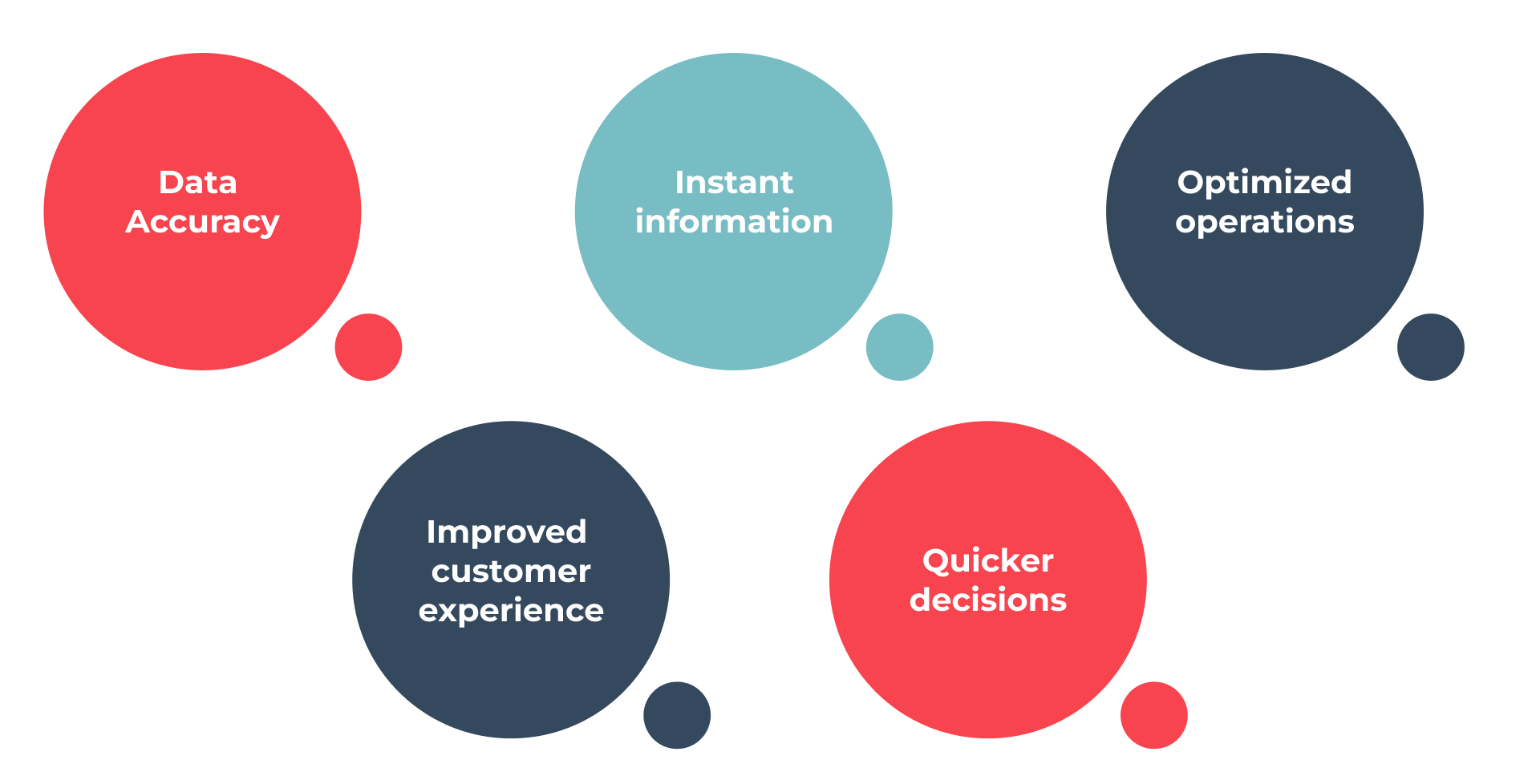Does your business struggle to keep customer data consistent across different systems? Your CRM and ERP systems contain valuable information about customers that can reshape your business operations. When these two platforms work together, they create a complete system to manage both customer relationships and business processes.
The integration of ERP and CRM systems will improve your customer service and make daily operations smoother.
Understanding ERP and CRM Systems
Understanding the distinct roles of Enterprise Resource Planning (ERP) and Customer Relationship Management (CRM) systems helps you manage your business operations better. These essential tools serve different yet complementary purposes throughout your organization.
Your ERP system acts as your enterprise’s central nervous system and manages core business processes including:
- Financial operations and accounting
- Supply chain and inventory management
- Human resources and payroll
- Manufacturing and distribution
- Procurement and compliance
Your CRM system handles all customer-facing activities. It becomes your organization’s memory bank for customer interactions and helps you track sales opportunities, manage marketing campaigns, and deliver excellent customer service.
The key distinction between these systems lies in their focus areas. ERP systems are finance-oriented and handle back-office operations, while CRM systems remain sales-oriented and manage front-office activities. Your ERP provides a single source of financial and operational data that enables quick, data-driven decisions. Your CRM builds stronger customer relationships through detailed interaction histories and customer priorities.
Your ERP works as your business’s backbone and handles internal resources and operations. Your CRM becomes your organization’s face and manages external relationships and customer experiences. These systems create a complete view of your business operations, though they typically function as separate entities unless integrated.
Benefits of ERP-CRM Integration
Your business can create a powerful combination by connecting CRM and ERP systems. This integration revolutionizes customer relationship management and business operations. The systems working together will bring quick improvements to data accuracy and operational efficiency.
These key benefits will emerge from the integration:
- Better Data Accuracy: Teams work with a single source of truth that eliminates data gaps and cuts down entry errors
- Immediate Information: Get instant updates about customer interactions, inventory levels, and sales results
- Optimized Operations: Automated workflows connect departments from order processing to customer support
- Better Customer Experience: Give tailored service with detailed customer profiles and interaction records
- Quick Decisions: Take action based on complete, accurate data from both systems
Sales and marketing teams get powerful advantages from this connection. They can check detailed customer histories, see buying patterns, and spot opportunities for cross-selling easily. Customer service teams provide faster and more precise answers because they can see inventory and order status right away.
Automated data syncing between systems boosts operational efficiency. Teams can skip duplicate tasks and reduce manual data entry while keeping information consistent across departments. Time savings come naturally, and the risk of errors that could hurt customer satisfaction drops substantially.
Implementing ERP-CRM Integration
A successful ERP-CRM integration needs good planning and a well-laid-out approach. You’ll need a dedicated project team with stakeholders from every department the integration affects.
Here’s everything you need to do for a successful implementation:
- Define Clear Requirements: Map your business processes and spot where your ERP and CRM systems need to connect
- Prepare Your Data: Clean and standardize your data before migration to keep it accurate
- Choose Integration Method: Pick cloud-based, on-premises, or hybrid solutions that match your needs
- Plan User Training: Create complete training programs to help users adapt quickly
- Test Really Well: Run extensive tests before full deployment
Make change management and user adoption your top priorities. Keep your team updated about the integration’s benefits and timeline. Note that you’ll need clear metrics to measure success and track how well your system performs.
Working with an implementation partner could give you the expertise and support you need. They’ll help guide you through technical challenges and make sure your integration follows industry best practices.
Make data transfer between systems automatic to cut down manual entry and boost accuracy. Your integration platform should sync important information right when users need it, creating smooth operations across departments.
Future Trends in ERP-CRM Integration
Breakthrough technologies are reshaping the CRM and ERP systems landscape faster and changing how businesses manage customer relationships. AI and Machine Learning (ML) have become core components of these integrated systems. They provide powerful predictive analytics capabilities that improve your decision-making processes.
Your integrated system will use these emerging technologies:
- AI-powered Analytics to learn more about customers
- Cloud Computing for better accessibility
- Internet of Things (IoT) for live data collection
- Advanced Security protocols for data protection
- Mobile-first Platforms that enable access anywhere
Predictive analytics will change your customer relationship management by forecasting buying patterns and anticipating customer needs early. Your integrated system will provide powerful analytics-based recommendations through machine learning algorithms that help your sales team prioritize opportunities better.
IoT sensors integration with your ERP-CRM system creates unmatched visibility into operations and customer interactions. Product usage updates, maintenance needs, and customer behavior patterns arrive instantly and enable proactive customer service with tailored experiences.
Future system updates will emphasize data privacy and security solutions more.
Conclusion
ERP-CRM integration revolutionizes how modern businesses achieve operational excellence and better customer service. This powerful combination breaks down data silos and creates continuous information flow between departments that enables quick decisions. Companies using this integration enjoy major benefits through better data accuracy, simplified processes, and detailed customer insights that propel business development.
Integrated ERP-CRM systems will offer more capabilities with AI, machine learning, and IoT technologies. These advances help businesses predict customer needs, automate complex processes, and deliver customized experiences efficiently. Smart companies know that successful ERP-CRM integration goes beyond a technical upgrade. It represents a strategic investment that ensures long-term business success and satisfied customers.


